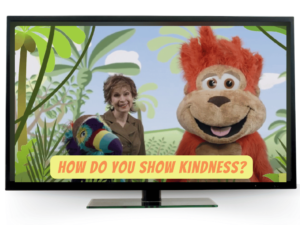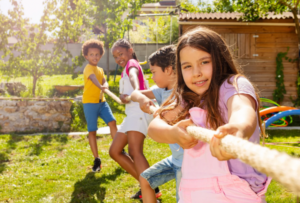Fostering a sense of empathy and community by teaching kids charitable habits is more important than ever in today’s fast-paced, digitally-driven world. One powerful way to achieve this is by teaching children the importance of charitable habits. Engaging young minds in acts of giving benefits those in need and nurtures the child’s development, creating a ripple effect of positivity that can last a lifetime. In this article, we explore six key benefits of teaching elementary-aged children charitable habits.
1. Encourages Empathy and Compassion
Empathy, the ability to understand and share the feelings of another, is a cornerstone of emotional intelligence. When children participate in acts of giving, such as donating toys, they learn to appreciate the circumstances and emotions of others. Research indicates that children who engage in pro-social behavior exhibit higher levels of empathy and emotional well-being.
Giving helps children develop compassion and reduces tendencies toward bullying and insensitivity.
For example, the Charity for Change Program integrates academic learning, character education, and charitable giving. Students engaged in the curriculum first learn about local charities and then decide together on the charity they want to support. As they complete the curriculum activities, they earn dollars that we will donate to the charities that the students have selected.
Students work together practicing positive character traits as they complete curriculum activities that include mindfulness, animated math, hands-on projects for charities, GiverTV videos, puzzles, plays, parent activities, and kinesthetic games. This innovative approach not only improves their academic skills but also instills compassion and community responsibility.
When children work together to solve problems and earn money for a charitable cause, they directly experience the impact of their collective efforts. This process enhances their understanding and appreciation of others’ needs and fosters a lasting sense of empathy.

2. Builds Stronger Social Connections
Charitable activities often involve teamwork and collaboration, allowing children to form meaningful connections with peers and adults. These interactions strengthen social skills and build a sense of community. By working together toward a common goal, children learn the values of cooperation, communication, and mutual respect. These social connections are vital for their overall development and future success in interpersonal relationships.
3. Teaching Kids Charitable Habits Builds Self-Esteem
Engaging in giving can significantly boost a child’s self-esteem and confidence. Studies have shown that children who regularly engage in charitable activities report higher levels of self-worth and optimism. When children see the positive impact of their actions, they feel a sense of accomplishment and pride. This sense of efficacy encourages them to take on new challenges and develop a growth mindset. Students discover first-hand that their efforts can make a difference in the world.

4. Encourages Gratitude
Charitable actions teach children the value of giving over receiving. Children who regularly engage in giving are more likely to develop gratitude and appreciation for what they have. This can lead to less materialism and a more balanced, fulfilling approach to life.
5. Instills a Sense of Responsibility
Teaching kids charitable habits instills a sense of responsibility and civic engagement. They learn that they have the power and responsibility to contribute to the well-being of their community. This early understanding of civic duty can lead to a lifelong commitment to active citizenship, planting the seeds of a future generation that is more engaged and responsible.

Want to learn more about the Charity for Change Program ?
At Charity for Change, we believe in empowering children through acts of kindness, fostering a brighter future for all.
Charity for Change is an engaging curriculum that integrates character education, service learning, math and language arts.
Charity for Change offers a powerful curriculum that fits educators’ needs:
- Easy to implement
- Meets funding requirements & life skill competencies
- Rigorous, flexible, evidence-based content
- Online testing & reporting
- Affordable
Request More Information about the Charity for Change Program.

Written by Karen Conley
Founder and CEO of Charity for Change
References
- Kris, D. (2023). Help Kids Be More Empathetic By Caring for Others. PBS Kids. Retrieved from https://www.pbs.org/parents/thrive/how-caring-for-living-things-helps-kids-build-empathy
- Ho, J. and Funk S. (2018). Promoting Young Children’s Social and Emotional Health. NAEYC . Retrieved from https://www.naeyc.org/resources/pubs/yc/mar2018/promoting-social-and-emotional-health





